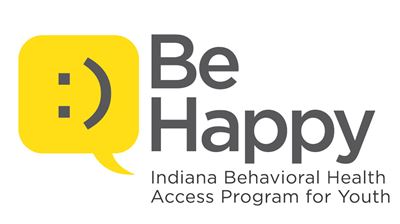Mental health care is in high demand throughout the United States, primarily due to the lack of behavioral health specialists. With a shortage of mental health care experts across the country, youth with mental health disorders often do not receive needed treatments.
Currently, Indiana ranks 48th in the United States in availability of child psychiatrists. Historically, primary care providers would refer patients to psychiatrists or therapists for their mental health needs. However, due to provider shortages, children may have to wait months to receive psychiatric care, which can lead to worsening of their untreated symptoms. With such a shortage in accessing psychiatric care, primary care providers are often on the front lines in addressing mental health concerns for patients.
To address the shortage of mental health services and child psychiatry, more than 30 states have implemented child psychiatry access programs (CPAPs), which offer free remote consultations for primary care providers in pediatric settings. These programs have proven to be an important tool for pediatric primary care providers in prescribing and managing psychiatric medications for patients. They also provide critical education and training to primary care providers and their staff in behavioral health screenings.
In 2019, the Department of Psychiatry at Indiana University School of Medicine launched the Indiana Behavioral Health Access Program for Youth (Be Happy)—the first and only child psychiatry access program in the state. The program, funded through the Family Social Services Association-Division of Mental Health and Addiction, aims to improve Hoosier families’ access to best practice pediatric behavioral health care by supporting local primary care providers with guidance from psychiatric specialists.

“One of our team’s top priorities is to ensure that every Hoosier family – regardless of location or circumstance – has access to best practice pediatric mental health care,” said Rachel Yoder, MD, assistant professor of clinical psychiatry at IU School of Medicine who provides consultations for the Be Happy program.
Yoder mentioned that one of the best ways to make that happen is through convenient, timely collaboration and consultation across specialties, including pediatrics, family medicine and psychiatry.
Since starting the Be Happy program, 243 providers in 46 counties across the state have registered for services. From rural communities to urban neighborhoods, primary care providers have benefited from this program.
According to Lara Darling, MD, an IU Health physician with Riley, families and primary care providers are often the first to notice mental health issues in adolescent patients. Because of this early detection of a patient’s need for mental health support, it made sense for Darling to get involved in the Be Happy program once it piloted.
“I have a 5-year-old patient with bad anxiety who is now appropriately on an anti-anxiety medication. Now they are happy, healthy and succeeding,” Darling said. “Prior to this program, I wouldn’t have been comfortable in prescribing them medication.”
The program has even reached physicians in southern Indiana, including James Tucker, MD, a pediatrician at Norton Healthcare in Jeffersonville. Tucker’s patients are often from single-parent homes, have existing mental health needs, are impacted by addiction or have heightened stress levels. When he heard about the Be Happy program he thought it was too good to be true.
“The program has been phenomenal,” Tucker said. “When it comes to medical curbside consultations, I was astonished at how it worked with my schedule and how incredibly thorough it was in giving me guidance to provide my patients with the best possible care.”
The program has not only enabled Tucker to be his own expert, but has encouraged him to take thorough notes on the types of treatment that will be most useful for his patients—a sentiment echoed by Lebanon-area pediatrician Sarah Bosslet, MD.
“The program really helped me manage medications for my patients, “Bosslet said. Before participating in the Be Happy program, Bosslet had struggled with the ongoing battle of communication between psychiatry and primary care providers.
“So many patients would come to me after an inpatient stay with severe anxiety or depression, confused about their medication plan, and I wouldn’t know how best to treat these patients,” she said. After participating in the program, Bosslet noticed the gap between psychiatry and primary care provider growing smaller as she felt more equipped to support her patients.
“It’s evident that the emotional well-being of a child impacts their overall health,” Bosslet said. “After gaining knowledge in how best to manage medications and treat their mental health issues, not only has the health of my patients improved but so has my relationship with them.”
Bosslet mentioned that the more physicians use this service, the less they’ll need it.
“I’m calling less because I’m more confident in providing care to my patients when it comes to their mental health,” she said. She also finds that in many cases, her use of medication to treat mental health concerns has actually decreased.
Hundreds of physicians throughout the state have benefited from this program and applied it to their everyday work. In turn, countless youth now have access to mental health care of which they otherwise wouldn’t have received.
"The rapid uptake and utilization of the Be Happy program is incredibly encouraging,” Yoder said. “Meeting the mental health needs of Hoosier children and adolescents directly, efficiently and in a setting where they are most comfortable is exactly what the program is designed to do."
Learn about the Indiana Behavioral Health Access Program for Youth and how IU School of Medicine is expanding access to mental health care across the state.
